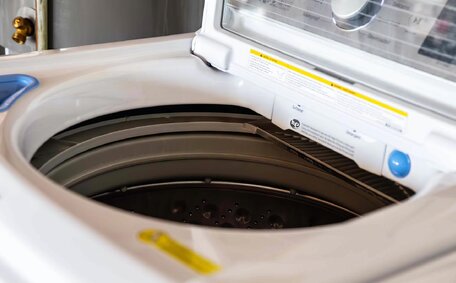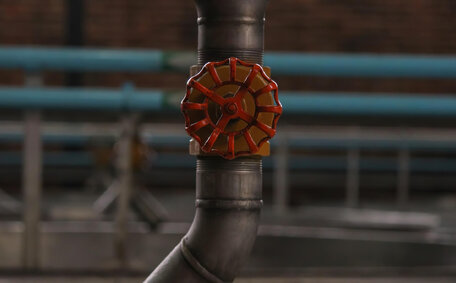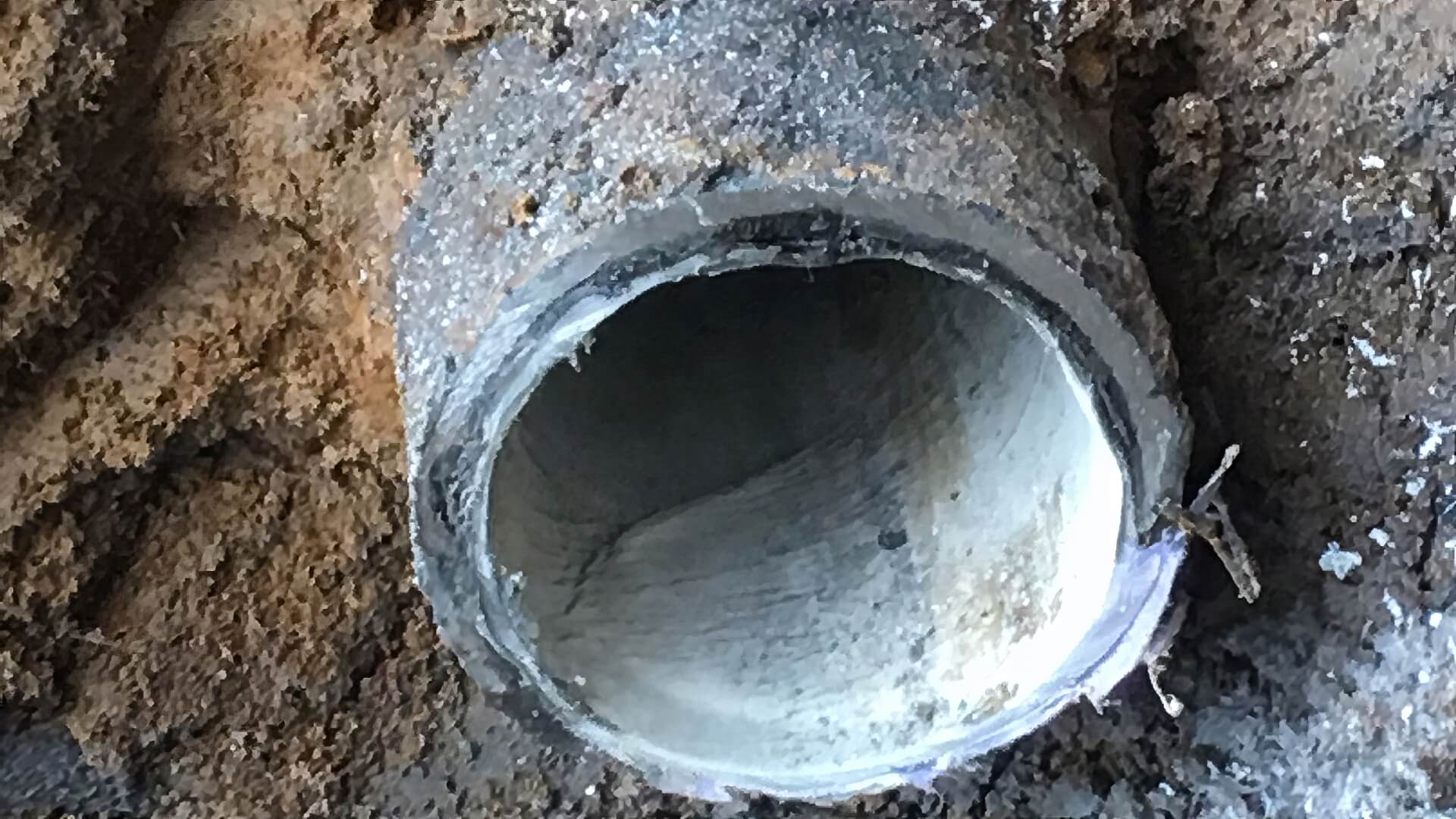Introduction to Preparing Your Hot Water System for Winter
Cold snaps present a challenge to your hot water system. To avoid damage and maintain efficiency when the mercury dips, it’s vital to undertake essential preventative measures. At Pennant Hills Plumbing, we specialise in hot water system maintenance and can assist to winterize your hot water system, ensuring its peak performance during the colder months.
Preparing your water heater for colder months involves several key tasks: flushing out sediment, replacing the anode rod, insulating external tanks, and adjusting your thermostat. For tankless systems, it’s a good idea to perform descaling as a critical measure before winter hits. Taking the time for proactive maintenance, including drain cleaning, can avoid frozen pipes, corrosion, and other cold weather issues down the road.
Let us guarantee your hot water system’s reliability in the colder months; thorough maintenance can make a significant impact. Our local licenced technicians are dedicated to your plumbing’s longevity, offering comprehensive inspections and servicing to prepare your system for the winter chill.
Give us a call at Pennant Hills Plumbing today on 1300 349 338 or jobs@pennanthillsplumbingservices.com.au to schedule a winterization appointment. Acting swiftly on preventative maintenance can save on costs, stave off emergency repairs, and secure your family’s comfort all season long.
Understanding Your Hot Water System
Hot water systems come in various types. The most common types for homes are storage hot water systems and tankless systems.
Storage water heaters hold a tank of hot water ready for use. These heaters function by warming water in the tank, maintaining it at your chosen temperature. Storage systems cover a range of models, with gas hot water systems being a popular choice among electric, solar, and heat pump varieties.
They all have basic components like:
- A thermostat to control water temperature
- An anode rod located inside tank that corrodes to protect against rust and damage
- Insulation around the exterior to retain heat
Tankless (or on-demand) heaters only heat water as needed, so there’s no tank. Tankless water heaters use powerful burners that quickly heat water flowing through coils. Tankless systems provide a dependable water heater, albeit with possible flow rate decreases during simultaneous use of multiple fixtures.
During winter, your hot water unit exerts extra effort to manage the colder temperatures. Issues such as frozen pipes become more prevalent as the temperature drops. Maintenance steps like draining the tank, replacing the anode rod, adjusting the thermostat, and descaling the unit can help prevent issues that can cause problems during cold weather.
If you need a new hot water system or are having issues with your current heater, the licenced technicians at Pennant Hills Plumbing can do a great job inspecting your unit and help keep your home’s hot water running this winter. Reach out to us today for comprehensive hot water service maintenance or repair appointments, and ensure your water heater’s readiness for winter.
Inspecting Your Water Heater Before Winter
To prepare your water heater for the winter season, inspecting it before the cold sets in is a crucial maintenance task. Here are some key steps to take:
- Check for sediment buildup - Over time, minerals and sediment from your water supply can accumulate at the bottom of the tank. This buildup can prevent your heater from working efficiently. Drain your tank by releasing a few gallons from the drain valve to flush out sediment.
- Assess the anode rod - This sacrificial rod corrodes to prevent tank deterioration. Replace your sacrificial anode rod if it’s worn down more than halfway.
- Check insulation - Make sure your external insulation is intact and has not gotten wet or damaged.
- Test temperature pressure - Adjust the thermostat to deliver 120-140°F water. Test your TPR valve by opening it manually.
- Inspect pipes and valves - Look for signs of leaks, corrosion or freezing on all plumbing lines and valves.
- For tankless heaters, descale - Flush the system per manufacturer instructions to prevent mineral scale buildup.
- Clear air filters - For heat pump or solar models, clean or change air filters if needed.
Ensuring your hot water heater is maintained preventively before the winter season can act as a flood stop and guard against frozen pipes, ensuring continuous service when it’s essential. The friendly technicians at Pennant Hills Plumbing are experts in winterizing your water heater and can perform any required servicing to keep it running even as temperatures drop below freezing.
Schedule a proactive pre-winter inspection by contacting us at 1300 349 338 or jobs@pennanthillsplumbingservices.com.au. Early maintenance secures your home’s plumbing integrity for the whole season.
Recommended Water Heater Settings for Winter
Adjusting your hot water heater’s thermostat is a crucial step in winter maintenance. Follow these guidelines for temperature settings based on your heater type:
- Electric hot water systems - Set the thermostat to 55°F (13°C) to prevent freezing. For adequate hot water supply, increase to 120-140°F (49-60°C).
- Gas water heaters - Set between 120-140°F (49-60°C) to keep temperatures safely above the threshold where bacteria growth risks increase.
- Tankless heaters - Set to 120°F (49°C). Higher than 140°F wastes energy.
- Heat pump/hybrid heaters - Set to 120-135°F (49-57°C) for optimal efficiency.
While you should consider your heater’s recommended guidelines, 120-140°F (49-60°C) is generally ideal for winter settings. This ensures energy efficiency while still supplying a flow of warm water, around 100°F, from your faucets after mixing with cold water.
Lower thermostat temperatures can lead to Legionella bacteria growth. Settings above 140°F can also introduce safety risks and lead to unnecessary energy waste as you mix in more cold water. Adjusting your temperature strikes the right balance.
Our friendly team at Pennant Hills Plumbing can inspect your hot water system to ensure it’s optimally prepared to face winter’s chill. Contact us at 1300 349 338 or jobs@pennanthillsplumbingservices.com.au to schedule winter water heater maintenance.
Signs Your Hot Water Heater Needs Maintenance
There are a few clear signs indicating your hot water heater may be in need of maintenance:
- If you’re met with hot water inconsistency or sudden temperature changes, sediment accumulation or thermostat issues could be at fault.
- Strange noises - Rattling, rumbling, or popping sounds can signal sediment accumulation in the tank. This build up of debris needs to be flushed out.
- Slow hot water recovery - If it takes longer for your hot water to come back after showers or running the dishwasher, your heater may need to be descaled or have its heating elements checked.
- Rusty water - Rust-coloured or dirty water indicates corroded piping or a worn out anode rod, which will require replacement.
- Low water pressure - Weak flow from faucets could mean you need to adjust the water pressure or check for leaks.
- Higher energy bills - A dramatic spike in your energy bills can signal a problem like a faulty thermostat or diminished insulation.
Don’t ignore these signs. Prompt servicing of your hot water heater can safeguard your water pipes from failure, freezing, and flooding, preventing expensive repairs later.
For trusted plumbing services, the licenced professionals at Pennant Hills Plumbing are here to help. Contact us at 1300 349 338 or jobs@pennanthillsplumbingservices.com.au to schedule a thorough inspection and keep your hot water heater running efficiently.
Improving Hot Water Heater Efficiency for Winter
- Insulating your hot water heater tank and pipes is advisable for greater efficiency. Added insulation minimises standby heat loss, helping your heater retain more heat. Proper insulation requires using correct materials such as foam sleeves or fibreglass batting.
- Prioritise servicing the heating elements or burners. Hard water can deposit minerals on heating elements or gas burners, reducing their efficiency. A technician should inspect and clean the heating elements or burners.
- Check your thermostat. Reducing the temperature by 10-15 degrees Fahrenheit could save nearly 10% on water heating expenses. Keep the temperature above 120°F (49°C) to prevent bacterial growth.
- Replace the anode rod if corroded. Your tank relies on the anode rod as a sacrificial component that attracts corrosion. Replace it if it’s over 50% corroded.
- Improve air flow for heat pump models. Ensure sufficient clearance around the unit and clean air filters regularly.
- Consider upgrading to an energy-efficient tankless water heater if yours is over a decade old. Energy Star-rated heaters can cut water heating bills significantly, by 30% or more.
A Pennant Hills Plumbing technician can assess your hot water system and suggest efficiency enhancements for winter. Optimised heating investments can reduce energy wastage and ensure an adequate hot water supply.
Reach out to us today at 1300 349 338 or via jobs@pennanthillsplumbingservices.com.au to arrange a pre-winter service appointment.
Preventing Damage from Freezing Temperatures
To avert frozen pipes and cold-induced damage, several critical steps should be followed:
- Insulate any water lines and pipes in outdoor or unheated locations such as basements and attics. Use pipe sleeve insulation or heat tape designed for your pipes.
- If your water tank for the hot water heater is in an unheated area, wrapping it in an insulation blanket could be beneficial. This helps retain heat.
- Seal any drafts or openings around plumbing fixtures and pipes where cold air could get in.
- Disconnect exterior hoses from faucets and install insulated hose bib covers.
- Keep your home sufficiently warm and be familiar with your water supply shutoff locations to ensure indoor temperatures remain above freezing when you’re absent.
- For tankless systems, resist switching off the power; continuous electrical connectivity is vital for freeze protection. Many tankless heaters have built-in freeze protection, negating the need to turn off water heating power.
- Drain outdoor fixtures, swimming pools, sprinklers, and similar installations to prevent the risk of pipes freezing.
- Find out how to operate the main water shutoff valve for your home’s plumbing to enable a swift cessation if necessary.
Taking precautions can effectively protect your plumbing system from suffering costly damages due to burst pipes and water damage. The licenced professionals at Pennant Hills Plumbing are ready to help winterize your water pipes and plumbing lines around your house. Contact us at 1300 349 338 or jobs@pennanthillsplumbingservices.com.au for proactive maintenance before winter arrives.
When to Call a Professional
While regular maintenance can prevent many winter-related issues, there are times when it’s best to call in a professional plumber for service:
- Your hot water supply is completely cut off
- You have no hot water due to a suspected heating system failure
- A pipe has burst and caused flooding
- There was very noticeable leaking from the tank
- You find ice buildup on pipes or notice other freeze damage
- The pressure relief valve opened and won’t close
- Sediment flushings did not restore hot water capacity
- The anode rod shows extensive corrosion when inspected
- Descaling chemicals and flushing don’t restore flow rate
- You smell gas or the heater makes abnormal noises
Your plumber has expertise not just in troubleshooting but also in executing comprehensive repairs for hot water heater issues. We’re available 24/7 for emergency calls and can quickly restore your hot water supply.
Trust our certified plumbers to skillfully handle complex repairs, maintaining your home’s heating system during winter. Contact us today at 1300 349 338 or jobs@pennanthillsplumbingservices.com.au for prompt attention from Sydney’s top-rated plumbing professionals.
Your hot water supply is completely cut offYou have no hot water due to a suspected heating system failure





